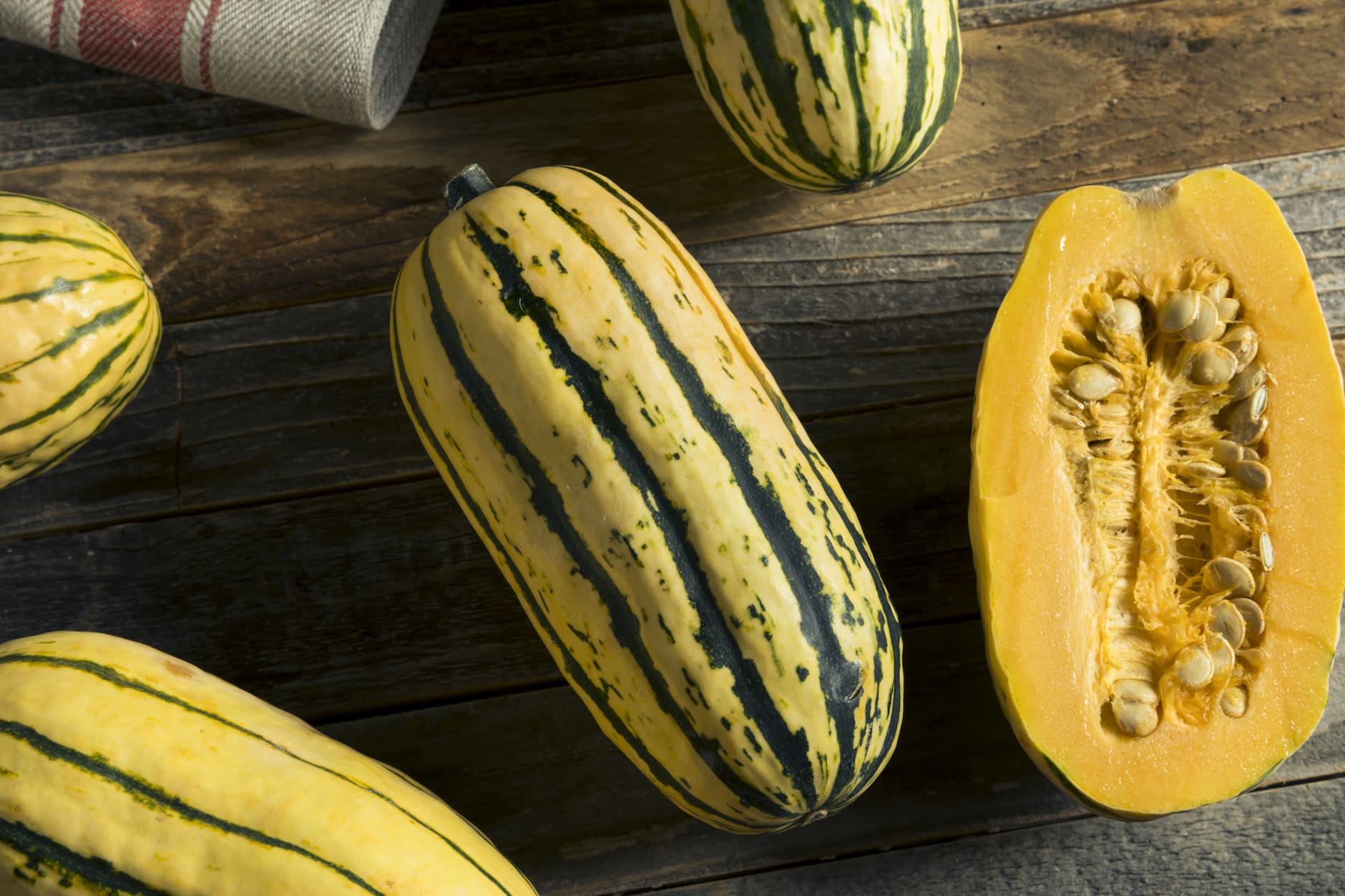
Delicata squash might not be the first veggie that comes to mind, but it’s a hidden gem in the world of gourds. This oblong, cream-colored squash with green stripes packs a punch in both flavor and nutrition. Did you know it’s often called the "sweet potato squash" because of its rich, sweet taste? Unlike other winter squashes, delicata has a thin, edible skin, making it easy to prepare and enjoy. Whether roasted, stuffed, or pureed, this versatile squash can elevate any meal. Curious about its benefits and uses? Let’s dive into 25 fascinating facts about this delightful squash!
Key Takeaways:
- Delicata squash, also known as sweet potato squash, is a creamy and sweet winter vegetable with thin, edible skin. It's rich in vitamins, high in fiber, and low in calories, making it a healthy and delicious addition to your diet.
- Growing and cooking Delicata squash is simple and rewarding. Whether you roast, stuff, grill, or sauté it, this versatile vegetable is easy to prepare. With proper care, you can enjoy its rich flavor and nutritional benefits for months after harvesting.
What is Delicata Squash?
Delicata squash, also known as sweet potato squash, is a type of winter squash with a creamy, sweet flavor. Its tender skin makes it unique among winter squashes because it can be eaten without peeling.
- Delicata squash has a cylindrical shape with green or orange stripes running along its pale yellow skin.
- Botanically, it belongs to the species Cucurbita pepo, the same species as zucchini and pumpkins.
- The name "Delicata" comes from its delicate skin, which is much thinner than other winter squashes.
- It was first introduced in the early 1890s by Peter Henderson & Company, a seed company in New York.
Nutritional Benefits of Delicata Squash
This squash is not only delicious but also packed with nutrients. Here are some of the health benefits you can gain from including it in your diet.
- Rich in vitamins A and C, Delicata squash helps boost the immune system and improve vision.
- High in fiber, it aids digestion and helps maintain a healthy weight.
- Contains potassium, which is essential for heart health and muscle function.
- Low in calories, making it a great option for those looking to reduce calorie intake without sacrificing flavor.
How to Cook Delicata Squash
Cooking Delicata squash is simple and versatile. Here are some popular methods to prepare this tasty vegetable.
- Roasting is the most common method. Slice it into rings or half-moons, toss with olive oil, salt, and pepper, then bake until tender.
- Stuffing the squash halves with grains, vegetables, or meats creates a hearty and nutritious meal.
- Grilling adds a smoky flavor. Simply slice and grill until charred and tender.
- Sautéing in a pan with butter or oil brings out its natural sweetness.
Growing Delicata Squash
If you have a green thumb, growing Delicata squash in your garden can be rewarding. Here are some tips to get you started.
- Plant in full sun for at least six hours a day to ensure healthy growth.
- Well-drained soil is crucial. Squash plants dislike soggy conditions.
- Space plants about three feet apart to give them room to spread.
- Water consistently, especially during dry spells, to keep the soil moist but not waterlogged.
Harvesting and Storing Delicata Squash
Knowing when and how to harvest and store Delicata squash ensures you get the best flavor and longevity from your crop.
- Harvest when the skin is hard and the color is vibrant. This usually occurs about 100 days after planting.
- Cut the squash from the vine with a sharp knife, leaving a few inches of stem attached.
- Cure the squash by leaving it in a warm, dry place for about a week. This helps toughen the skin and improve storage life.
- Store in a cool, dry place. Properly cured and stored, Delicata squash can last up to three months.
Fun Facts About Delicata Squash
Here are some interesting tidbits that make Delicata squash even more fascinating.
- Also known as "Bohemian squash," it has a rich history in American cuisine.
- The flesh is often compared to sweet potatoes due to its creamy texture and sweet flavor.
- It was nearly extinct in the 20th century but was revived by enthusiastic gardeners and farmers.
- Delicata squash seeds can be roasted and eaten, similar to pumpkin seeds.
- It pairs well with a variety of flavors, including maple syrup, sage, and Parmesan cheese.
Final Thoughts on Delicata Squash
Delicata squash, with its sweet flavor and edible skin, stands out among winter squashes. It's not just tasty but also packed with nutrients like vitamin A, vitamin C, and fiber. This squash is versatile, fitting into various dishes from soups to desserts. Its ease of preparation makes it a favorite for busy cooks. Plus, it's a great option for those looking to add more vegetables to their diet without much hassle. Whether roasted, stuffed, or pureed, delicata squash brings a unique taste and texture to meals. So next time you're at the market, grab one and experiment in the kitchen. You'll find that this humble squash can elevate your culinary creations. Enjoy the journey of discovering new recipes and flavors with delicata squash. Happy cooking!
Frequently Asked Questions
Was this page helpful?
Our commitment to delivering trustworthy and engaging content is at the heart of what we do. Each fact on our site is contributed by real users like you, bringing a wealth of diverse insights and information. To ensure the highest standards of accuracy and reliability, our dedicated editors meticulously review each submission. This process guarantees that the facts we share are not only fascinating but also credible. Trust in our commitment to quality and authenticity as you explore and learn with us.


